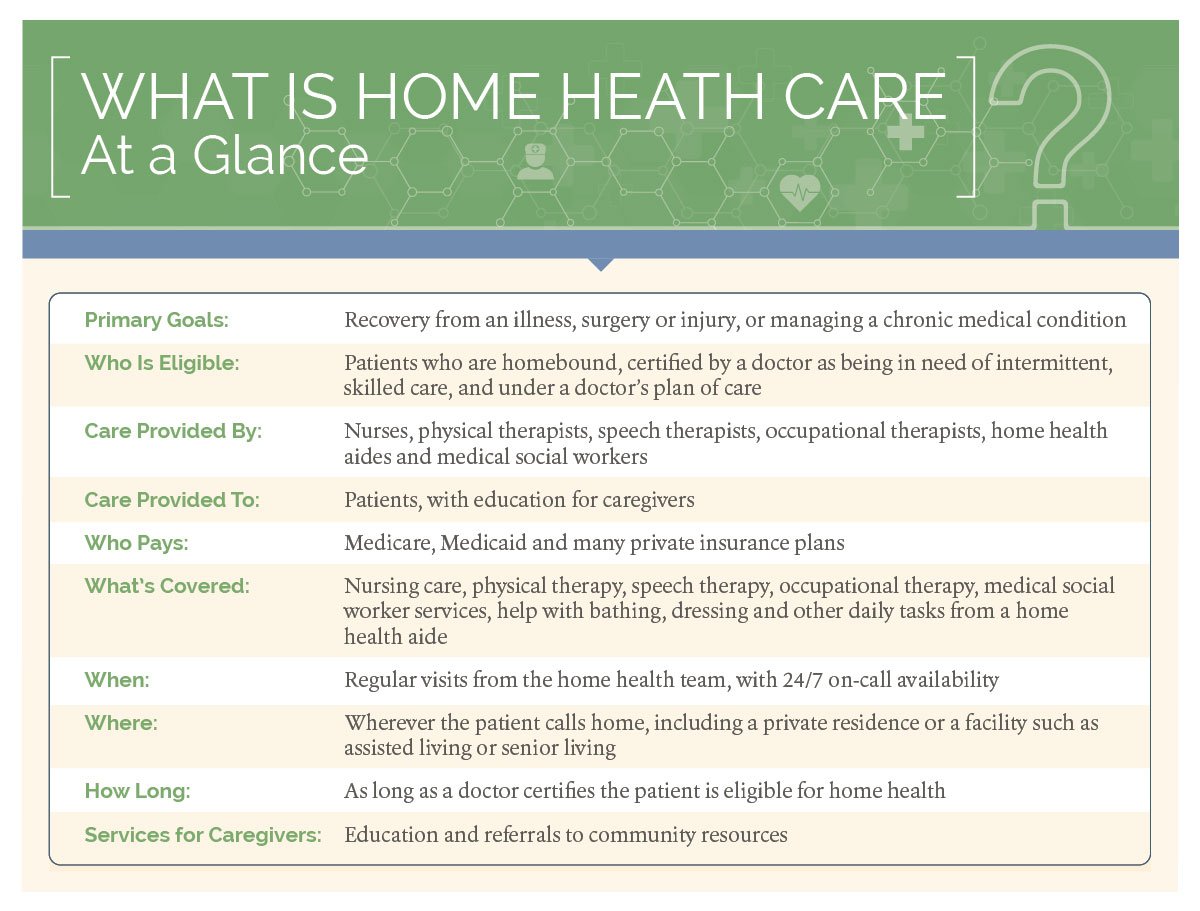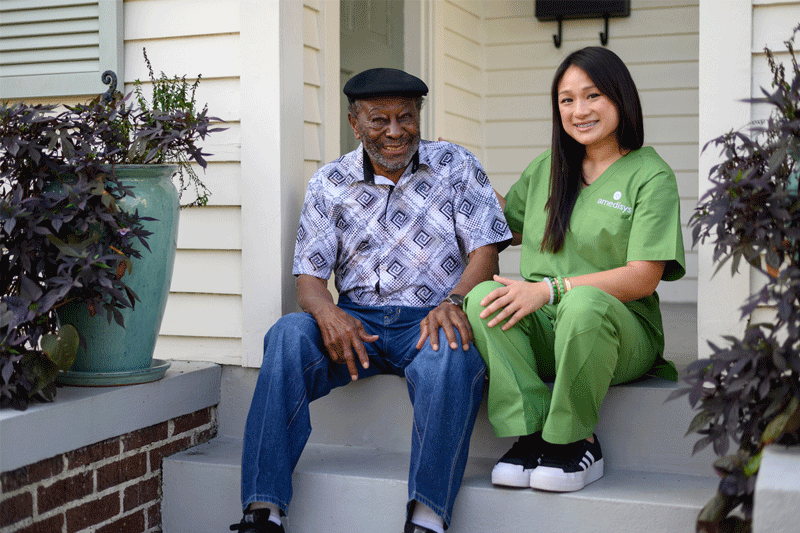Millions of older adults could be getting the support of home health care, but aren’t. Why are they missing out? Many don’t know what home health care is or how it could help them. Others know what it is, but don’t think they’re eligible. You might be able to get the benefits of home health care and not even know it.
So, what is home health care?
[callout 1]
What Are Home Health Services?
Now that you know the home health definition, let’s define home health services. Home health care offers more than what people typically think of as “health care.” Home health can include a wide range of services such as:
- Medical services from licensed nurses
- Occupational therapy to help you do daily activities safely in your home
- Speech therapy to improve feeding, swallowing and communication
- Physical therapy to relieve pain and restore flexibility, strength, balance and coordination
- Medical social work to coordinate services, fill out paperwork and find helpful resources
- Help with bathing, dressing and other daily tasks
- Patient and caregiver education so you learn how to manage your condition on your own
- Medication management to make sure you’re taking medications as directed by your doctor
- Injections and intravenous therapy
- Fall prevention
- Wound care
Who Is Right for Home Health Care?
There are eligibility requirements for home health. For example, you must be considered “homebound.” This means leaving home takes a taxing effort and you need the help of a walker, wheelchair or other device, or another person to leave home. You might also meet this requirement if you’ve been advised by your doctor to stay home because leaving could make your condition worse. Homebound means that if you do leave home, it is only periodically and for a short time. This may include, for example, going out for important appointments, religious services or certain family events.
Another requirement is that you need intermittent (not continuous) care from skilled professionals, such as nurses and/or physical, occupational and speech therapists. In addition, your plan of care must be supervised by a doctor.
Home health care might be right for you if you meet the eligibility requirements and you:
- Visit your health care provider a lot
- Get admitted to the hospital or visit the emergency department often
- Have one or more chronic health conditions
- Take several medications
- Recently had a fall
- Need nursing, therapy or other skilled help after an illness, injury or surgery
- Are struggling with daily activities like bathing, dressing or eating
- Are adjusting to a new diagnosis or medication
You will need a doctor’s order to start home health services. Care starts with a visit to your home to talk about your needs and learn more about your health. A team member will ask questions about your diet, medications, pain level, home safety and other aspects of your life. Then the team sets up a schedule with services geared toward your needs and updates your doctor on your progress.
Still wondering, “What is home health care?” Read answers to our frequently asked questions.
Paying for Home Health Care
Sometimes people think that a helpful service like home health care must be expensive. Not so. If you meet eligibility requirements and have a doctor’s order, Medicare can cover the cost of home health care. Medicaid, the Veterans Administration and some private insurance plans also pay all or some of the cost. If any services aren’t covered, the home health agency will tell you how much you have to pay before providing the service.
Why Patients Prefer Home Health Care
Most people want to recover at home if possible. Here are a few reasons why:
- Comfort and convenience of home
- Help to live independently
- Feel better and slow decline
- Delay or prevent the need for a nursing home or hospital
- Cheaper than the care you get in a skilled nursing facility or hospital
- High-quality care from licensed nurses and therapists
What Home Health Care Is Not
It’s important to get answers to the question “What is home health care?” But it’s also helpful to know what home health care is not. Here are a few facts to know about the home health care definition:
Home health is not limited to people who are bedbound.
Based on the home health definition, you must be homebound. Homebound is not the same as bedbound, which means you’re unable to get out of bed. In fact, home health services are designed to help you move around better and handle daily tasks on your own.
Home health is not the same as home care.
Home care, or personal care, provides non-medical help with chores and daily activities. The home health definition is also different from hospice, which provides pain and symptom relief in the last few months of life.

Home health care is not a long-term service.
To be covered by Medicare, your need for home health must be short-term or intermittent (not continuous). The main goals are to teach you how to care for yourself, manage your health and live as independently as possible.
Home health is not 24/7 care.
Members of the home health team regularly visit your home. The rest of your day-to-day care will need to be provided by another caregiver, usually either a family member or a paid caregiver.
If you think home health care might be right for you or a loved one, ask your doctor about it. Together, you can decide which type of care will help you meet your goals.
Want to learn more about the home health care definition? You can call an Amedisys home health care center near you to learn more about what home health care is.





